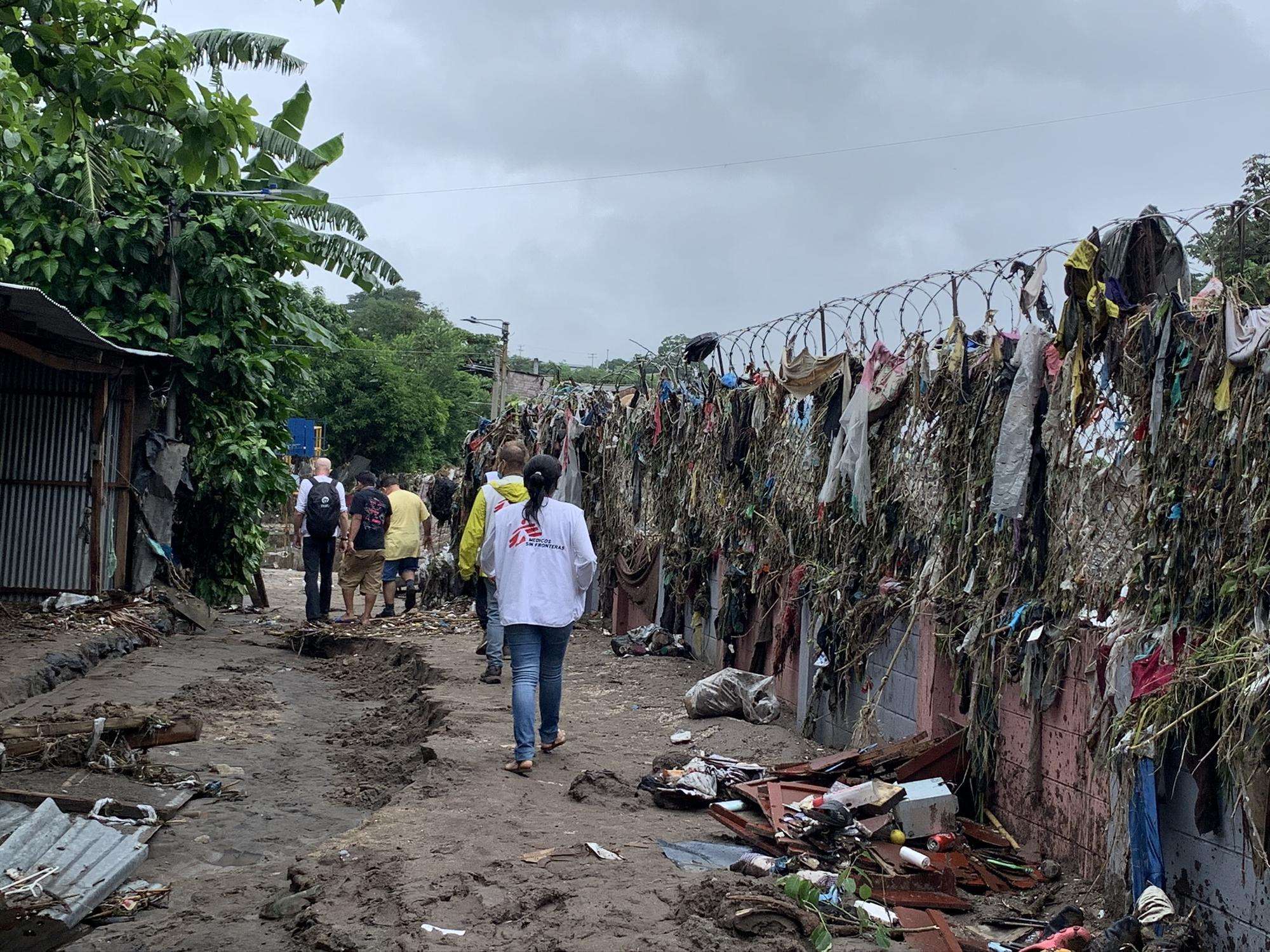NEW YORK/SAN SALVADOR, JUNE 11, 2020—Following tropical storm Amanda, which hit El Salvador on May 31, the medical humanitarian organization Doctors Without Borders/Médecins Sans Frontières (MSF) has launched emergency activities in some of the most affected communities in the capital, San Salvador, and built 25 shelters in San Salvador and Soyapango.
As floods, high winds, and heavy rains damaged approximately 30,000 homes in El Salvador, many people are seeking safety in crowded shelters set up by communities or authorized by the government. Physical distancing recommended to prevent the spread of COVID-19 and compliance with prevention and infection control measures are nearly impossible in these settings.
"There are several risks in a situation like this,” said Serge Jory, a doctor working in MSF’s mobile clinic. “Due to exposure to contaminated water and lack of water, there is a risk of outbreaks of diarrhea, bacterial infections, respiratory infections, skin conditions, and the spread of COVID-19 due to overcrowding.”
The storm—which killed 27 people and has left ten more missing—has been devastating for many families across El Salvador, particularly those living in the Granjero II, Nueva Esperanza, Florida, and Arca de Noé neighborhoods in San Salvador. In a matter of minutes, the force of the nearby river’s overflow swept away many houses and buildings, with some people losing everything they own.
During the day, people of all ages in El Granjero II try to rescue what is left of their belongings. At night, some go to stay in makeshift shelters, but others sleep on the damp floor of their damaged houses for fear of theft or the spread of COVID-19 if they go elsewhere. There are few or no windows, the provision of water is erratic because the pipes have collapsed, and there are not enough toilets.
"These communities were already facing uncertainty and lack of access to healthcare because of the COVID-19 pandemic, and this only makes the situation worse," said Luis Romero Pineda, MSF’s field coordinator in El Salvador. "People are at risk of a range of mental and physical health problems following the destruction of property and the loss of loved ones.
MSF teams have visited affected communities and shelters and are providing primary medical and psychological care in a mobile clinic. MSF has also donated hygiene kits to some of the most in-need shelters, and soon a health promotion team will address issues related to health education and disease prevention.
"Natural disasters can cause severe trauma to the people who experience them,” said Ana Paula Abreu, MSF’s mental health manager. “In one moment, they see all their personal space—part of their identity—destroyed. Providing psychosocial support at this time is crucial as it helps to prevent people from developing mental health problems.”
Before the storm, people already faced the economic and social consequences of complying with the quarantine imposed by the Salvadoran government to prevent the spread of COVID-19. The lack of a fixed income and the lack of food are massive concerns for many people, as is violence.
“The pervasive violence in El Salvador has also weakened the provision of health services and built up stigma around COVID-19, as gangs control huge parts of the neighborhoods in the cities,” Pineda said. “This storm in the midst of the COVID-19 pandemic is the last straw for many of these families.”
Some people who suffer from chronic illnesses like diabetes and hypertension are unable to access the healthcare they need because of the suspension of non-COVID-19 services in the public health units during quarantine. The loss of treatment and medical records is also a big problem and means patients cannot manage their chronic illnesses, which can lead to the deterioration of their health.
El Salvador: MSF responds to tropical storm Amanda as country continues to battle COVID-19

El Salvador 2020 © Alejandra Sandoval/MSF



